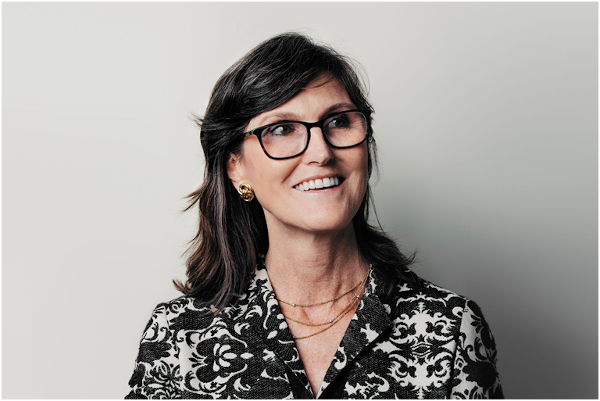
Charles R. Goulding considers ARK’s investment strategy as it relates to 3D printing.
The October 26th, 2020 issue of Barron’s contained an extensive interview with Cathie Wood, a trained economist and the founder, CEO, and CIO of ARK Investment Management. ARK is strictly focused on investing in disruptive innovation. Founded in 2014, ARK has $30 billion in investments including $15 billion in exchange-traded funds (ETFs) and its five actively managed ETFs have returned 92% year to date. ARK identifies four market inefficiencies that may cause investors to miss out on future growth driven by disruptive innovation.
For Barron’s, Wood said she likes 3D printing due to its ability to “bring supply chains closer to home.” She said:
“Even though it’s had a very slow start and is exclusive to the aerospace area, adoption will accelerate because it’s so much cheaper and faster, and you can manufacture very close to the end consumer.”
3D printing is of course expanding well beyond aerospace and is widely used in medical (e.g., dental, implant, training) applications, industry, automotive, and an ever-increasing list of end-use areas.
On its website, ARK states that it covers 50 3D printing publicly-traded companies. ARK subdivides its 3D printing investments into the following categories: 3D Printing Hardware, Scanning & Measurement, Materials, Software, Enabling Technology, and Artificial Intelligence (AI). ARK’s 3D printing strategy reads:
“This index-based equity strategy seeks to provide investment results that closely correspond to the performance of the Total 3D-Printing Index, which is designed to track the price movements of stocks of companies involved in the 3D printing industry. The Total 3D-Printing Index is based on ARK’s research and is composed of equity securities and depositary receipts of companies that are engaged in 3D printing related businesses within the following business lines: (i) 3D printing hardware, (ii) computer aided design (“CAD”) and 3D printing simulation software, (iii) 3D printing centers, (iv) scanning and measurement, and (v) 3D printing materials.”
ARK offers both ETFs (with 3D printing as the index) and managed 3D printing accounts.
Federal tax incentives, such as the Research and Development Tax Credit, are available for companies that engage in 3D printing activities.
The Research & Development Tax Credit
Whether it’s used for creating and testing prototypes or for final production, 3D printing is a great indicator that R&D Credit eligible activities are taking place. Companies implementing this technology at any point should consider taking advantage of R&D Tax Credits.
Enacted in 1981, the now permanent Federal Research and Development (R&D) Tax Credit allows a credit that typically ranges from 4%-7% of eligible spending for new and improved products and processes. Qualified research must meet the following four criteria:
- Must be technological in nature
- Must be a component of the taxpayer’s business
- Must represent R&D in the experimental sense and generally includes all such costs related to the development or improvement of a product or process
- Must eliminate uncertainty through a process of experimentation that considers one or more alternatives
Eligible costs include US employee wages, cost of supplies consumed in the R&D process, cost of pre-production testing, US contract research expenses, and certain costs associated with developing a patent.
On December 18, 2015, President Obama signed the PATH Act, making the R&D Tax Credit permanent. Beginning in 2016, the R&D credit can be used to offset Alternative Minimum tax for companies with revenue below $50MM and, startup businesses can obtain up to $250,000 per year in payroll tax cash rebates.
Conclusion
ARK is one of the few investment firms that emphasize 3D printing investing. If the firm continues to outperform the market, its assets under management will increase and 3D printing will gain increased investor attention.
